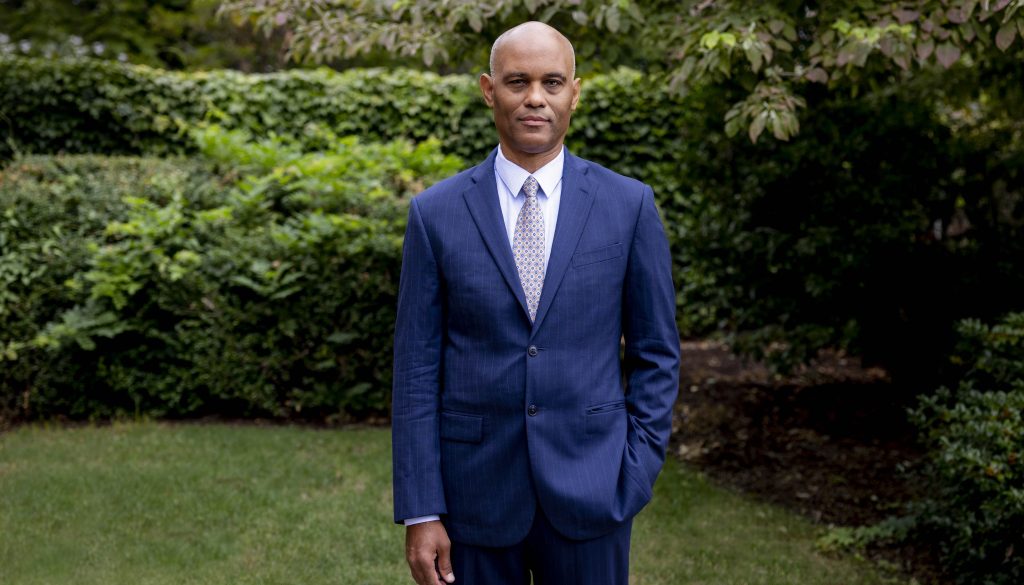BC Law’s Initiative on Land, Housing & Property Rights (ILHPR) has been named a recipient of an inaugural impact award from Harvard University through its Harvard and the Legacy of Slavery Initiative’s (H&LS) Reparative Partnership Grant Program. The H&LS program is meant to address systemic inequities affecting descendant communities of formerly enslaved people, and stems from Harvard’s efforts to address its legacies of slavery through “meaningful, visible, and effective actions.” ILHPR will be partnering with the Massachusetts Affordable Housing Alliance (MAHA), a leading nonprofit housing organization in the Commonwealth, and with the Legal Services Center of Harvard Law School.
H&LS announced seven inaugural impact awards, each totaling $350,000 for two years, and seven inaugural seed grants, each totaling $25,000. “We are very grateful to have received one of the inaugural Reparative Partnership Grant Program impact awards, particularly given the robust number of excellent grant proposals,” said ILHPR founder and director Thomas W. Mitchell, BC Law’s Drinan Professor of Law. “I would like to thank Harvard University and its H&LS Initiative for recognizing the potential impact of our proposal and for this generous funding, which we will use to help descendant communities in Boston and Cambridge preserve their homes.”
Under its project, titled ‘A Homeownership Estate Planning Project to Close the Racial Wealth Gap,’ ILHPR and MAHA will sponsor community legal education estate planning workshops in Boston and Cambridge for mostly Black and brown families, and help build an estate planning module to a curriculum nonprofit housing organizations use in their work with first-time, low-income homebuyers.
“Compared to the percentage of white adults, 40 percent fewer Black and brown adults have a will or some other type of estate plan—with the will-making rate for Black and brown families barely hovering over 20 percent,” Mitchell said. “The lack of a will or other type of estate plan can pose substantial problems for disadvantaged people who want to pass down their wealth to the next generation, including their homes and land. The loss of homes that may be attributable to a lack of estate planning is significant, and it contributes to the fact that Black families in the greater Boston area have an average of $8 dollars of net worth as compared to the $247,000 of average net worth for white adults.”
The hope, Mitchell added, “is to put nonprofits in a better position to educate their clients about the importance of estate planning for future generations so that they can better preserve their homes and other assets. In addition, thirty to forty families that attend the community legal education workshops we’ll sponsor will be able to have wills, simple trusts, or other types of estate plans drafted for them by our Harvard partner, the Legal Services Center of Harvard Law School.”
“The lack of a will or other type of estate plan can pose substantial problems for disadvantaged people who want to pass down their wealth to the next generation, including their homes and land.”
Professor Thomas Mitchell
The award was announced at the H&LS 2024 symposium ‘Reckoning with History, Shaping Our Future,’ which took place April 23-24.
Founded at BC Law in 2022, the ILHPR seeks to preserve and expand property rights for disadvantaged communities by producing research, devising legal reform and policy solutions, engaging in community outreach, training law students, and drawing on other complementary strategies.
The initiative encompasses a wide range of matters, including rural land loss among socially and economically disadvantaged families; the past and present of the destabilization of urban neighborhoods due to redlining, urban renewal, and rising markets; the role of law and policy in ameliorating housing inequality and housing insecurity; and the issues rural and urban so-called heirs’ property owners face in retaining their properties and realizing the potential of their ownership. By helping communities of color preserve and expand their property rights, the initiative seeks to help narrow the racial wealth gap. It also strives to reform or create laws and policies to increase property and housing access, efficiency, and equity.
Mitchell holds the Robert F. Drinan, SJ, Endowed Chair at BC Law. He is a national expert on property issues facing disadvantaged families and communities, and has published leading scholarly works addressing these matters in academic journals, government publications, and publications for trade associations such as the American Bar Association.
A MacArthur “Genius Grant” recipient, Mitchell has engaged in extensive law reform and policy work, most prominently serving as the principal drafter of a widely adopted uniform real property act named the Uniform Partition of Heirs Property Act (UPHPA), which is designed to substantially enhance the ability of disadvantaged families to maintain ownership of their property and their property-related generational wealth. The act has been adopted by twenty-four states and other jurisdictions at this time, with several other states considering it, making it one of the two or three most successful uniform real property acts the Uniform Law Commission (ULC) has promulgated in the past thirty years. Mitchell also has helped draft some congressional farm and housing bills, including one that Congress is considering at this time.


